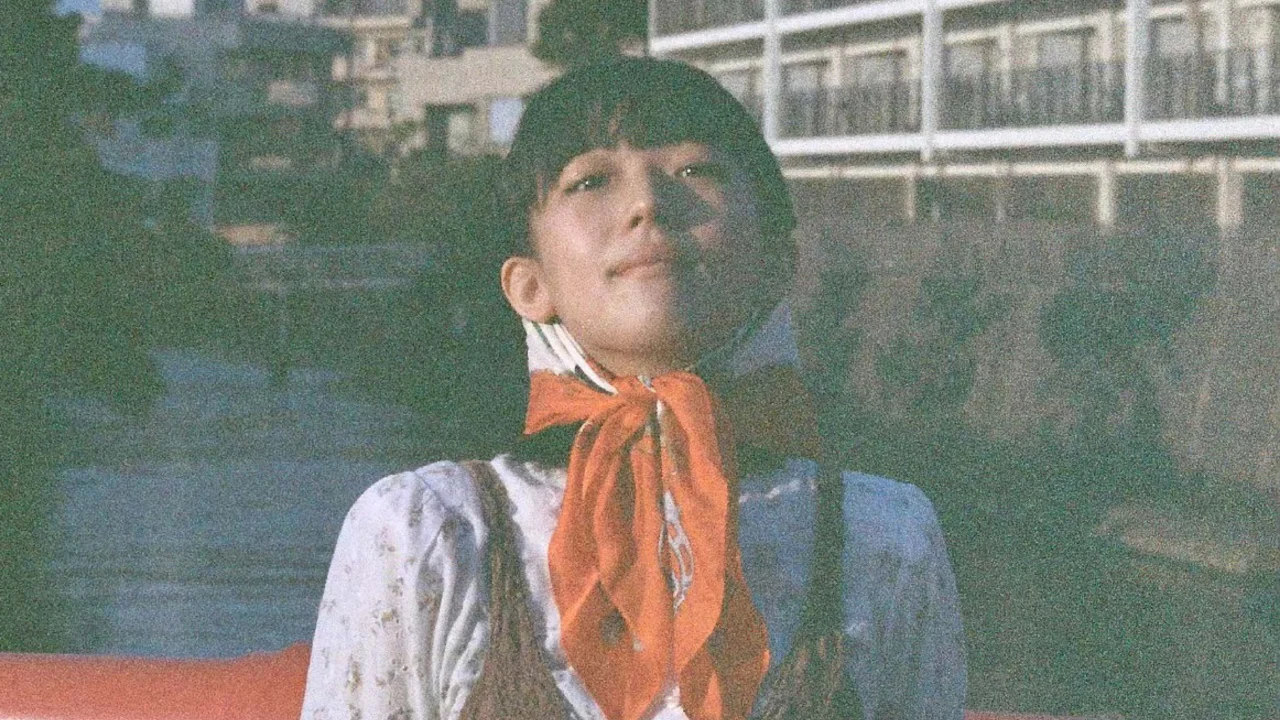INDEX
The Collaboration Behind “Riyuu wa Nai” and “Uraniwa”
Based on her experience participating in the recording of Abe’s songs, did Nagisa feel that she wanted Abe to produce her own music?
Murakami: Yes. During the production process, I talked a lot with Abe about things completely unrelated to music. Over time, I came to trust him. I wondered what kind of music he would create if he produced the songs I made, so I gathered my courage and asked him.

What conversations left an impression on you?
Murakami: We talked about the unique qualities of my songs, and there were many aspects I hadn’t noticed about myself. I feel like Abe helped bring out those parts of me during this production. Not only did he help expand my musical range, but more importantly, he brought out my human qualities. We discussed how things like my stubbornness and strong will could be expressed through music.
In terms of producing, what aspects did you focus on, Abe?
Abe: I listened to all of Nagisa’s past songs and thought that it might be fine if they weren’t too “indie.” Her voice is so good, so I felt that just working with good instruments and good players would make it sound great on its own.

Abe: When I first received the demo, I actually thought about changing it completely. At the time, I was listening to a lot of funk and soul, and I realized there wasn’t really anyone doing what Yoshida Minako was doing nowadays. I thought Nagisa’s vocals could probably handle it, and if we did it with today’s artists and recording environments, it could be really great. So, I started working on that direction. But then I remembered what Hosono said: “I don’t usually try to push my own direction too much when working on someone else’s project.” So, I decided to stay closer to Nagisa’s original style and approach, and that’s how we ended up with the final result.
Why did you choose “Riyuu wa Nai” and “Uraniwa” for the recording?
Murakami: “Riyuu wa Nai” was built from the lyrics. I recorded the words while walking, and I felt like I had captured what I wanted to say. I then looked at the lyrics and experimented with different chords and backing at home, and I ended up creating a song I really loved. I was really curious to see how Abe would transform this song through his production, so I chose “Riyuu wa Nai.” Since it was decided that Abe would produce two tracks, I wanted to show different aspects of my music, so I thought a different kind of song would be good and chose “Uraniwa.”
Do you often create songs starting from the lyrics?
Murakami: Normally, I don’t create songs this way. I usually come up with the lyrics, melody, and chords at the same time. But with this song, there was a photoshoot for my artist pictures, and I arrived a little early, so I decided to take a walk in the park. That’s when the idea suddenly came to me. I quickly recorded the words into a voice memo, and the lyrics ended up being more packed than usual. There’s hardly any space, the words keep flowing, there’s a rhythm, and the chords don’t change much.
Abe, how did you interpret the demo when you received it?
Abe: I actually told her, “Is this your hit song?” [laughs].
Murakami: Haha.

Abe: “It’s just one chord the whole time. Why are you trying to push this?” I thought that was interesting about him. So, even now, I still think of “Reason is None” as a difficult song, and I had a lot of discussions with the members who participated in the recording, like “Do you think this works?” This was my first time arranging someone else’s song, and I felt a sense of responsibility I hadn’t experienced before. If it was my own song, I could mess around with it and take care of the aftermath myself, but since it was Nagisa’s song, I couldn’t afford to mess around too much. I struggled with that, and in the end, I thought, “This is probably it.” I made the guitar distortion a little psychedelic, and I didn’t want it to be just a bright song with major chords. I wanted to capture a feeling like Happy End’s “Natsu Nandesu”—that kind of floating, unresolved sensation.
The sense of not quite landing aligns perfectly with the title “Riyuu wa Nai,” doesn’t it?
Murakami: It’s often thought that it’s good to explain things clearly with a reason, but I think there are a lot of things that don’t get resolved in that way. I prefer things that aren’t simple or easy to understand, and I think it’s okay not to understand the reason behind something. Sometimes, the desire to do something, just the feeling, is enough. So, I want to write lyrics that aren’t constrained by frameworks, and I would like to live my life without fitting into anything. That’s why I chose “Riyuu wa Nai.”
According to your self-written liner notes, the lyrics were inspired by a walk in the park, recalling memories from elementary school, and you wrote them just as they came to you.
Murakami: That’s right. It wasn’t really about writing to convey something, but more like turning the scenery of my childhood directly into a song. But when I listened to it after I created it, I realized that I had written what I was thinking at that time. Even words I wrote on a whim without a particular reason eventually gained their own meaning, and I think that meaning will keep evolving. I’ve always thought that things with this kind of fluidity are better.



























